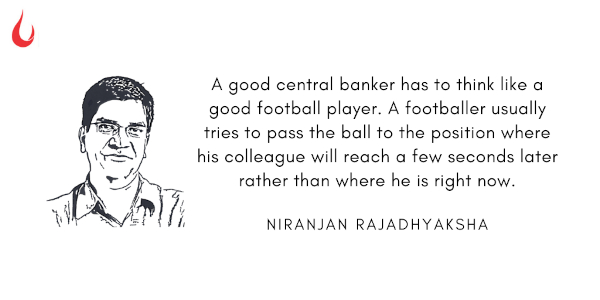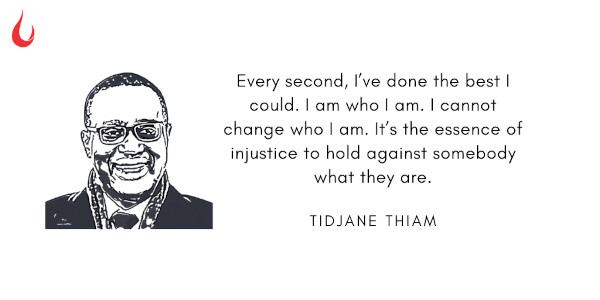[Image by Gerd Altmann from Pixabay]
Good morning,
At the time of writing this newsletter on a Tuesday night, all major news outlets across the world had gone into a funk about Donald Trump getting back to the White House, downplaying threats from the virus, removing his mask in public, undermining public health messages. Not just that, he tweeted about it.

What appears like churlish behaviour doesn’t surprise us anymore. In fact, why he is behaving the way he does is the theme of Archie Brown’s wonderful book The Myth of the Strong Leader: Political Leadership in the Modern Age. Brown is a British political scientist and historian and this book was chosen by Bill Gates as one of the best books of 2016.
Brown writes there, “Donald Trump secured almost three million votes fewer than his Democratic opponent, Hillary Clinton, but such are the vagaries of the constitutionally sanctified electoral college that he found himself in the White House.
“Being perceived as ‘strong’ was one of the factors that propelled Trump to victory. In November 2016, 36% of Americans said that what they wanted, above all, was a strong leader, whereas only half as many prioritized this attribute four years earlier. Trump played up his toughness during the campaign and was widely perceived to embody strong leadership. He has a long history of admiring power maximization and a show of force…”
“Following his election, members of his administration have made a virtue of the fact that Trump is a ‘strong leader’, even when this has involved them being an object of his public scorn.”
But, Brown goes on to point out that the link between a strong leader and an effective leader is a tenuous one. To make his point, he highlighted a survey by the Pew Research Centre that conducted a survey across 37 countries on how people perceive Trump. While most people thought of him as a strong leader, they also believed he is “arrogant, intolerant and dangerous”.
In the longer run, it doesn’t work for the country he represents. And in the current circumstances, it doesn’t work for him, or the constituency that voted him into power.
In this issue:
- What’s interesting about an agri economist at the RBI
- Falling off a glass cliff
- Thou shalt not covid
Have a lovely day!
An agricultural economist in RBI’s Monetary Policy Committee
India has appointed economists Ashima Goyal, Jayanth R Varma and Shashanka Bhide as members, Monetary Policy Committee, which sets the interest rate at the Reserve Bank of India. All three economists are well regarded. Among them, Bhide specialises in agricultural economics. What’s interesting about that?

In a column last year, Niranjan Rajadhyaksha explained why RBI was in dire need of experts who understand farm economy well. In short: knowing where food prices go is key to making monetary policy.
Rajadhyaksha wrote: “A lot of the immediate estimates of food price inflation are based on trends in wholesale prices in mandis across the country and surveys in consumer markets. Some have begun to scrape data from e-commerce sites as well. Economists in RBI and the private sector depend on such data to understand the direction of food prices in the next few weeks.
“Food price estimates for longer periods of time require more rigorous forecasts that feed into the inflation forecasting system.
“This is where RBI seems to be struggling. The dominance of food prices in the Indian consumer price index and the food price forecast errors of RBI in recent years have become a problem for monetary policy makers.”
Dig Deeper
Falling off a glass cliff
A glass cliff, The New York Times explains, is “the tendency of institutions to install women and minorities as leaders only when there’s big trouble, and then shunt them aside.”

The definition appears in a fascinating profile of Tidjane Thiam, who comes from a prominent political family in the Ivory Coast, and headed Credit Suisse between 2015 and 2020. He resigned after a former colleague accused him of sending spies after him. But that is not the complete story. His story also highlights how diversity and inclusion is hard—in businesses and in society. Here are two extracts from the story that capture the issue.
“In predominantly white Zurich, a city of just 400,000, his powerful role and his skin colour made him stand out. Mr. Thiam stopped driving his Porsche Cayenne to work, fearing that any run-in with another motorist, even over a parking spot, would turn into a media incident. On the tram, his adult sons were often the only Black riders—and the first to be asked for their tickets. Merely by appearing at a local nightclub, they could trigger gossip. Mr. Thiam felt that he was under a microscope; when his sister planned a surprise visit, an overeager Zurich hotel worker noticed her booking and shared the details with Mr. Thiam’s office, ruining the occasion.
“Before he departed Credit Suisse, Mr. Thiam had a chance to present his final set of earnings results to the press. Toward the end of the question-and-answer session, a local reporter spoke up.
“‘The strategy was good,’ the reporter said, but the style ‘did not speak to Swiss mentality. This is my question: Would it be different in England or another—’
“‘I am who I am,’ Mr. Thiam interrupted. ‘The same way I was born with a right hand, I cannot change being right-handed.’ He added, ‘If people don’t like right-handed people, then I’m in trouble. That’s all I can say, because I can’t become left-handed.’
“Colleagues sitting near him swore they saw Mr. Thiam’s eyes glistening.”
Dig Deeper
Thou shalt not covid

What are some of the creative ways that you have come across promoting masks? Tell us about it. Head to our Slack channel.
And if you missed previous editions of this newsletter, they’re all archived here.
Bookmark Founding Fuel’s special section on Thriving in Volatile Times. All our stories on how individuals and businesses are responding to the pandemic until now are posted there.
Warm regards,
Team Founding Fuel

